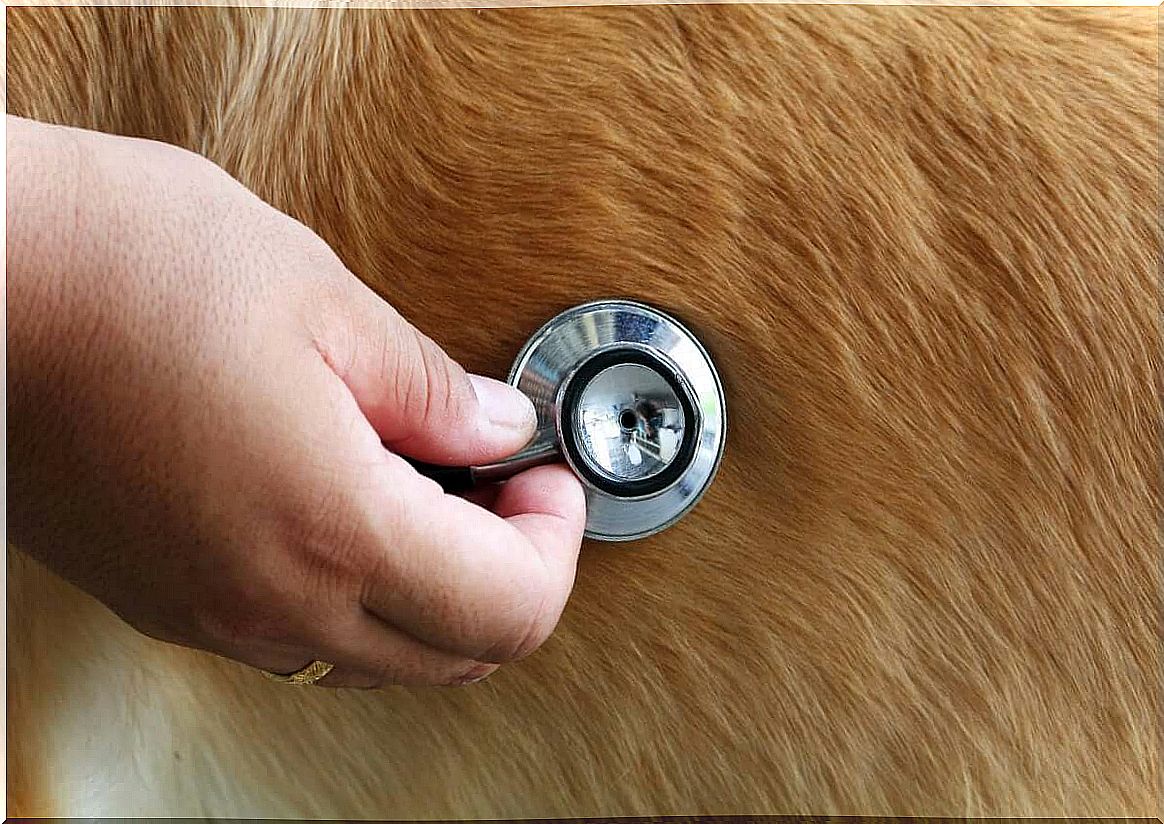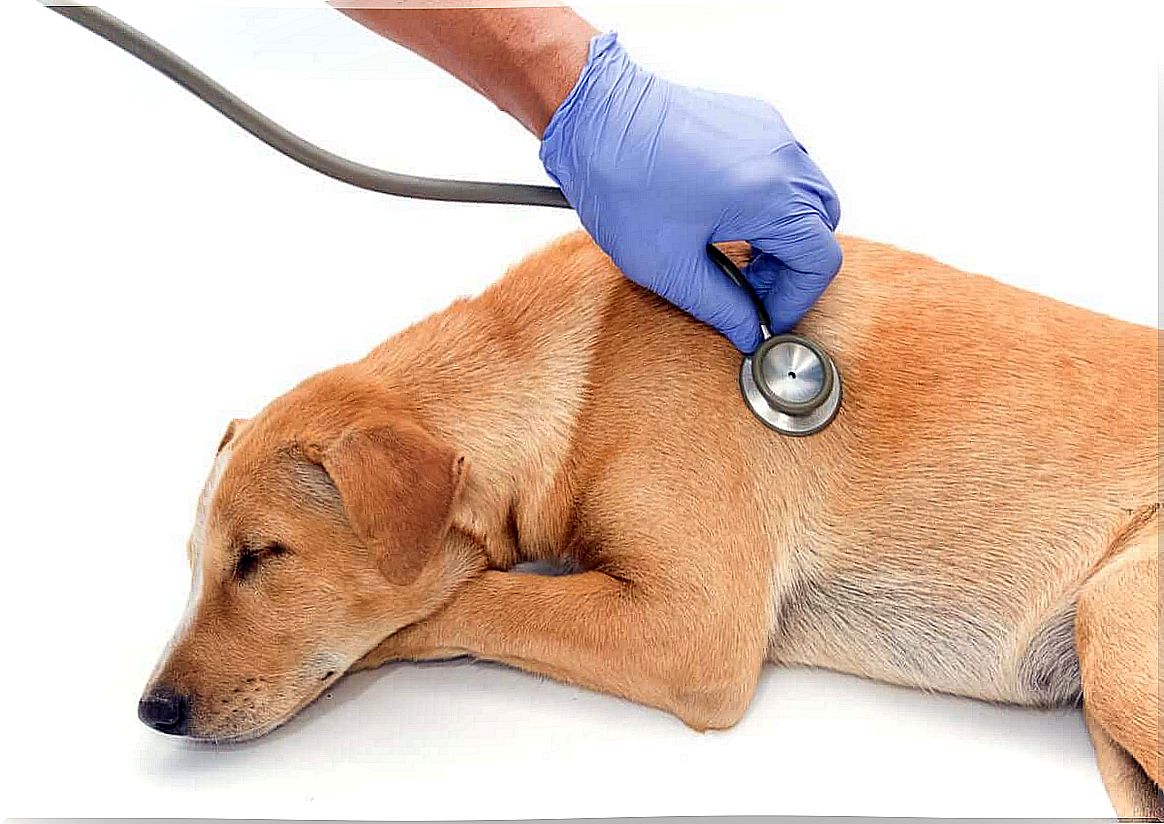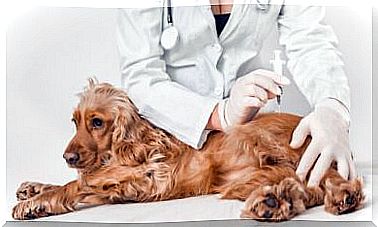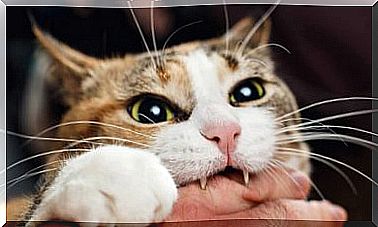Three Treatments For Pneumonia In Pets

Pathological processes involving the respiratory system are very common in daily practice. Among all of them, pneumonia in pets, although not the most common disease, is of special importance due to the possible severity of its prognosis.
Proper treatment of pneumonia can make a difference for the animal’s good recovery. So today we will look at possible ways to treat pneumonia in pets.
Pneumonia and its types
Pneumonia is defined as inflammation of the lung parenchyma. It is a disease that domestic animals do not usually have very often, but whose prognosis can be serious in some individuals.
Among pneumonias, there are different classifications according to their etiology. Therefore, from a medical point of view, we can divide them into:
- Bacterial pneumonia: an inflammatory response associated with the development of pathogenic bacteria lodged in the lung parenchyma. It is characterized by the exudation of cells and fluids in the airways and alveolar spaces.
- Mycotic pneumonia: responds to inflammation associated with the growth of mycotic microorganisms in the lung parenchyma. These fungi usually come from direct inhalation from the soil. In the pulmonary alveoli, they find the appropriate medium to develop.
- Allergic pneumonia : inflammatory process associated with the response to antigens present in the lung parenchyma. It can be caused by parasitic antigens or antigens present in the air, such as pollen or spores.
Since each type of pneumonia has a different causative agent, the treatment will always be directed to the control of the causative agent. So let’s explain the treatments for each type of pneumonia.

1. Treatment of bacterial pneumonia
As in all processes involving the development and proliferation of pathogenic bacteria, the main therapeutic measure is the administration of antibiotics. These medications can be administered orally or parenterally – through injections under the skin.
As for the choice of antibiotic, ideally it should be based on a culture and an antibiogram. The recovery of patients receiving antibiotic therapy from the result of an antibiogram is more promising. However, empirical treatment with a broad-spectrum antibiotic can also be done.
On the other hand, maintaining a good state of hydration significantly contributes to the elimination of mucociliary material and derived secretions. For this purpose, the administration of intravenous electrolyte solutions is useful. In addition, aerosol nebulization is also proven to be effective.
2. Treatment of mycotic pneumonia
Mycotic pneumonias are especially complex in terms of treatment, and the percentage of response from sick animals is very limited. Therefore, you have to be very careful with them.
Since there is the presence of mycotic microorganisms, specific medications for this type of pathogen are needed. Antifungal drugs are the fundamental pillar of therapy. It is worth noting that, for at least two months, the treatment must be uninterrupted.
After the animal’s recovery, it is advisable to keep the medication for a few more weeks to avoid relapses, as they are usually frequent in this type of disease. Thus, we are facing slow and expensive treatment, but certainly necessary.
3. Treatment of allergic pneumonia
The main therapeutic measure in this type of pneumonia is the administration of corticosteroids, such as prednisone or prednisolone. Other families of immunosuppressive drugs, such as cyclophosphamide or azathioprine, may also be useful.
This type of medication is useful to reduce the associated inflammatory process, as well as to decrease the intensity of clinical signs, which improves the animal’s breathing.
On the other hand, in the specific case of allergic pneumonia mediated by the presence of cardiac parasites, it is advisable to establish a specific treatment against them. In addition, it is also advisable to control and medicate against cardiovascular signs associated with the presence of these microorganisms.
In general, the prognosis for this type of disease is usually good and there is a high percentage of recovery. However, in the case of animals infected with heart worms, in addition to pneumonia, the prognosis will always depend on the cardiovascular consequences of the disease.

As you can see, pneumonia is a complex and potentially fatal disease. In any case, all information presented here is for information purposes and will never constitute a veterinary consultation. Therefore, if your pet has any respiratory problems, it is advisable to look for a professional so that he can evaluate and treat the animal correctly.









